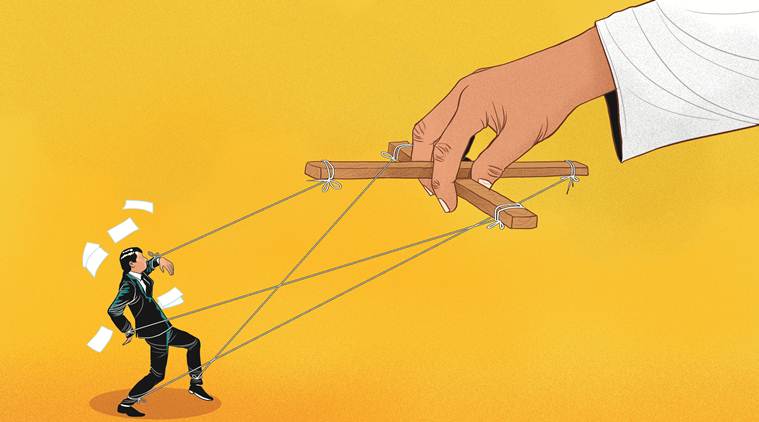
Irreverence has its place. Especially if it is coupled with integrity and there is no serious breach in discipline. I am talking of the civil services and with particular reference to the sudden and before-time shift of the Chief of Enforcement Directorate, Western Zone. The government has been prompt in avoiding the prolonged and painful tussle that the country recently witnessed in the fight between the two powerful blocks of the Central Bureau of Investigation (CBI). To that extent, the citizens have been spared the turmoil, but the reasons for the sudden action have not been made public and may never come out either. Despite the Right to Information Act, governments — irrespective of the party in power, are wary of disclosing anything as they feel threatened. So, lesson number one is that the Right to Information is a long battle and the citizens have won only the first round.
The sudden “shunting” of civil servants is bewildering to many, especially if the officer has been performing well. At such times the topic of “political interference” in administration invariably crops up. Politicians are painted as darker than black. It is a fact that if officers bend, politicians make them bend even more: But if they do not bend, they indeed are “shunted out” or not given prize postings. That is the price one pays for holding one’s spine straight. However, nowhere have we questioned the culture prevailing within the civil services — whether it is conducive to civil servants taking value-based personal positions, and colleagues standing by such officers and supporting them.
The sad truth is, the civil services induct some of the most talented and intelligent individuals in the country, and then labour hard on making them mediocre. We want clones in each of our departments. Original thinkers? The word does not exist in the dictionary of civil servants. Our prime focus is “safety”, and to be in the good books of the party in power: We feel insecure, very often, especially at the slightest departure from “precedence”, that holy word. We convey the same sentiment to the political bosses, too. Though they are a little more adventurous initially, soon they fall in line. The result is an opaque governance, the slow chugging train of Indian democracy.
An officer who dares to think different or breaks the stagnant, unproductive routine with any new initiatives, is first looked upon with suspicion. And if he goes at a speed that is decidedly not “ours”, he is shunted out so that we feel secure in our own slow bumpy ride. That has been the story for the last 72 years, and yet we wonder why India is still a developing country. Recently, Sabeer Bhatia of Hotmail fame, along with some others, moaned about the non-accountability of civil servants. The truth is that civil servants are as much responsible, if not more, for India missing many achievable goals given the political leadership of different parties: It takes much more to succeed as a nation than the tardy routine that most bureaucrats boast about. If that had been enough, we would have been a happy and healthy nation, decades earlier.
What the civil services need is a culture that accepts and values questioning and the irreverence of bold officers: The ultimate objective, of course, is to have integrity in one’s work ethic, and a steady commitment to the common good. If an officer is honest but different, let her be. If the officer has a different viewpoint, it is alright — in fact, that is what we need to take the country out of the rut. We, in the civil services, have been non-performers because we are clones of each other, unable to think differently.
When Harvard University studied the extraordinary response of the staff of the Taj hotel in Mumbai to the 26/11 crisis, they found that “What the Taj Group looks for in managers is integrity, along with the ability to work consistently and conscientiously. to respond beyond the call of duty, and to work well under pressure’’. While integrity, consistency, and conscientiousness are essential for civil servants, equally important is their ability to think positive, to think different and to be able to implement their thought process to ensure the good of the citizens. If these original thinkers are irreverent of seniority, let it be, as long as they show results. If they question, let us reply to them in full sincerity instead of putting them down. If they have views and opinions of their own, let’s forget our cumbersome protocol and listen to them wholeheartedly. They may, and do have substance, most of the time. If they look fearless, let’s not feel threatened. Fearlessness comes only if you have a spine and most of us have lost it some time back.
In India, the colonial culture gave way to the culture of “cloneism” in the civil services. That’s the reason why the country is stuck the way it is. There are many ways out of it, and one important solution is to make the civil services listen to the voices with a “difference”, from among their own. Another is to have a culture that rewards performance and not repetitive motions or “precedence”. Encourage officers who offer different solutions, even if they fail. If they are grounded to the field realities, they will come up with new ones. They may be irreverent and outspoken, and yet be the solution. In the “shunting out” of the Enforcement Directorate chief of the Western Zone, the prevalent system has, once again, failed to appreciate and value an officer who dares to think differently.
This article first appeared in the May 6, 2019 print edition under the title ‘Clones in the civil service’. The writer is an IPS officer of the Maharashtra Cadre, and retired as the Director General, Bureau of Police Research and development (BPRD)